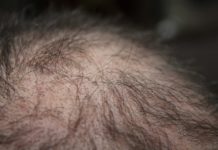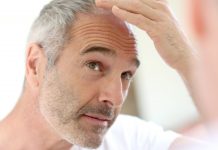There are number of hair loss treatment products available in the market today that really works. If you are one of those who is looking for a hair growth, considering a good supplement, such as palmetto or biotin is a vital option.
Each year, both American men and women spend over 3.5 billion USD each year on hair loss treatment products, while only few medications are proven to be most effective for majority of them hoping for hair regrowth. Some manufacturers are touting alternatives to counter hair loss such as hair supplement minerals, herbs, oils, and vitamins.
The medical term used for hair loss is alopecia, and majority of alternate hair loss treatments aim the two-major type: alopecia areata and androgenic alopecia. Alopecia areata is an auto immune condition that affects hair follicles and is the main reason of hair loss in small areas. On the other hand, androgenic alopecia is a hereditary disorder which is caused due to hair loss and thinning & fall out of hair in a common patter. Androgenic is experienced mostly is men. It can be seen as balding on the top of the head or as retreating in women. It can be seen rarely in women, as a hair thinning rather than balding due to hairline stays intact.
How to treat hair loss due to Alopecia Areata?
Generally speaking, alternative hair growth techniques don’t work miracle, though these approaches to hair loss aren’t completely ineffective.
Alternate hair loss treatment options:
Few of these listed supplements helps in controlling hair loss and others in stimulating hair growth.
- Biotin:Biotin is a perfect source of Vitamin B that aids hair growth and reduces hair loss. In children, biotin supplements in combination with zinc aspartate are used as a treatment for alopecia areata.
- Saw palmetto. Saw palmetto, an herb native to the southern United States, is commonly used for urinary problems resulting from benign prostatic hyperplasia (BPH), but it may also help stimulate hair growth in those with androgenic alopecia.
- Evening primrose oil.This hair supplement, derived from a North American plant with yellow flowers that bloom in the evening — hence the name — is used as a hair loss treatment because it contains gamma-linolenic acid (GLA), an essential fatty acid. Well publicized in recent years, a diet rich in essential fatty acids is ideal because these acids help with overall growth and development. Linolenic acid specifically has been linked to hair and skin health. Researchers at the University of Massachusetts studied the effects of linolenic acid-deficient diets in rats and found that hair loss can result when a deficiency is present.
- Coenzyme Q10. Co-Q10 is given to help boost cellular function. The aging process and disease are thought to deplete Q10 levels, which is why supplements of this kind have become so popular
- Copper and zinc. Much remains a mystery about autoimmune-related hair loss, or alopecia areata, but one theory is that the condition may be caused or exacerbated by an imbalance in trace minerals such as copper and zinc. A study in India determined that patients with alopecia areata who took copper supplements were unable to raise their copper levels, indicating that copper supplements would be of little benefit.
- Grape seed extract. Grape seeds contain procyanidins, a class of plant extracts thought to have antioxidant properties that may stimulate epithelial hair cells.
If you want to try any of these hair supplement products, check first who is the best hair transplant surgeon & consult with doctor to make sure there won’t be any interactions with medications you are already taking or negative effects on other health conditions you may have.











